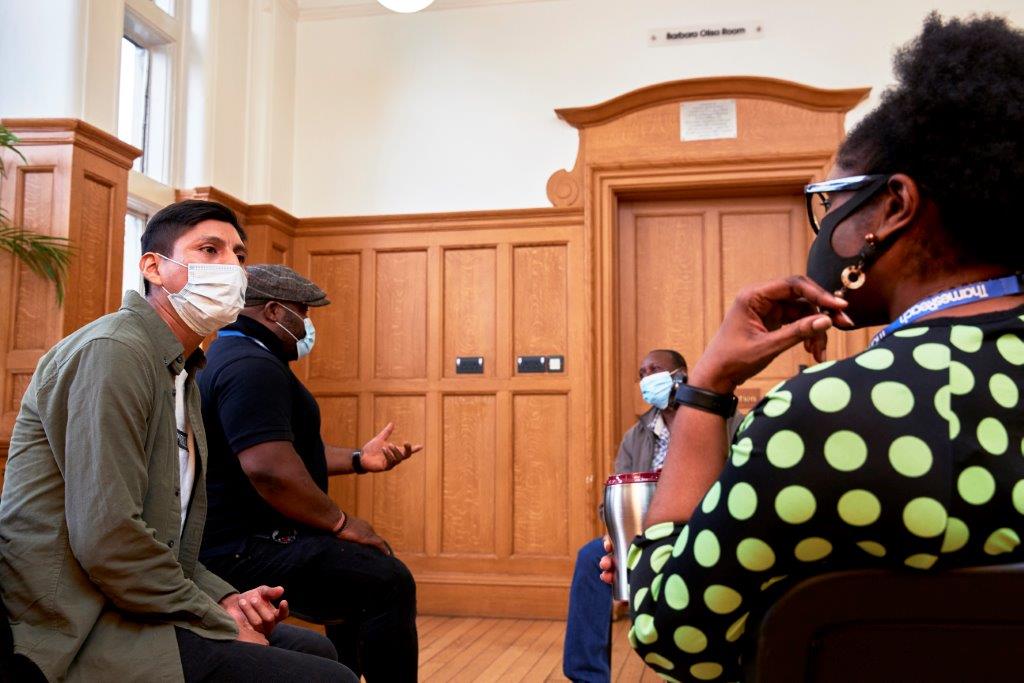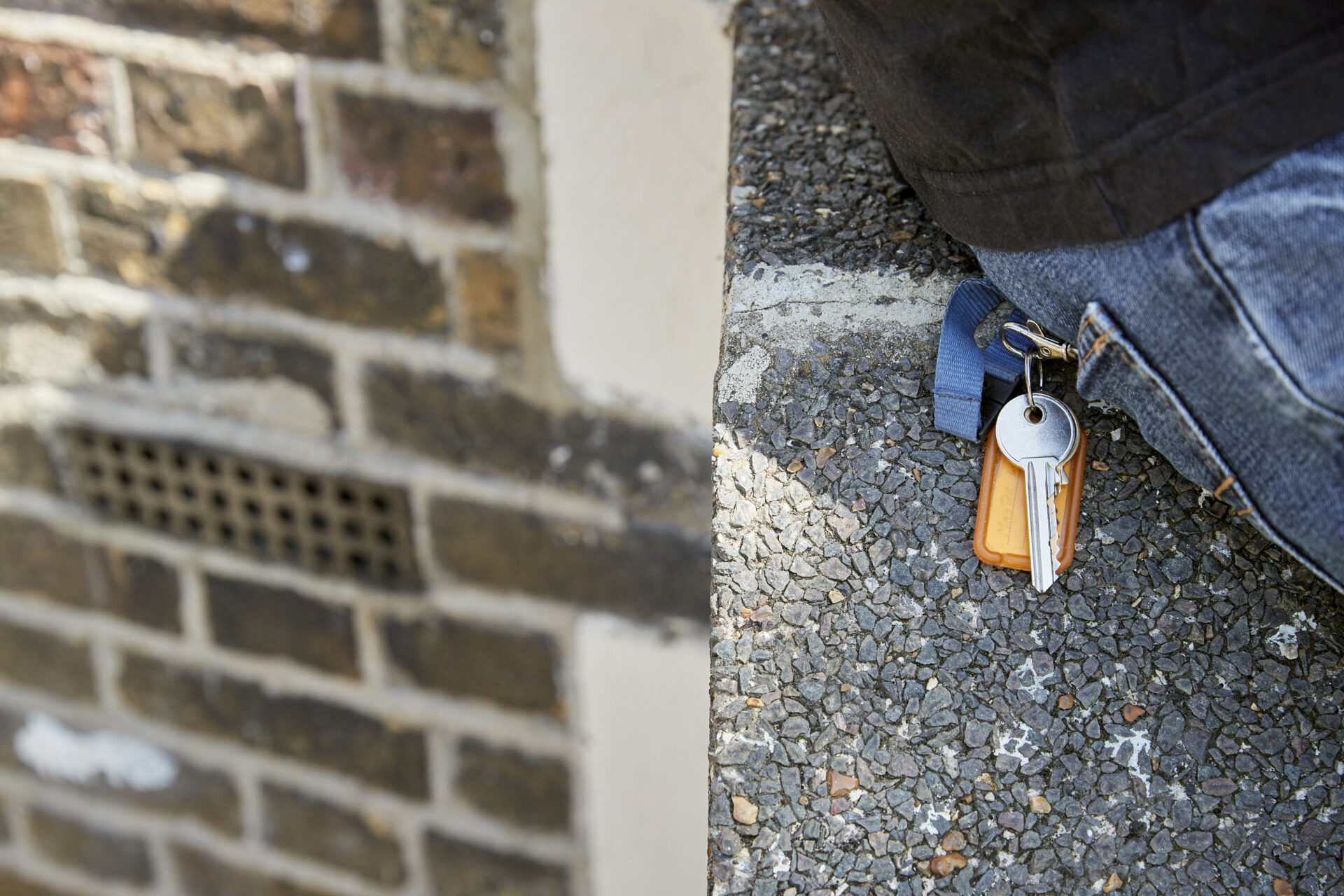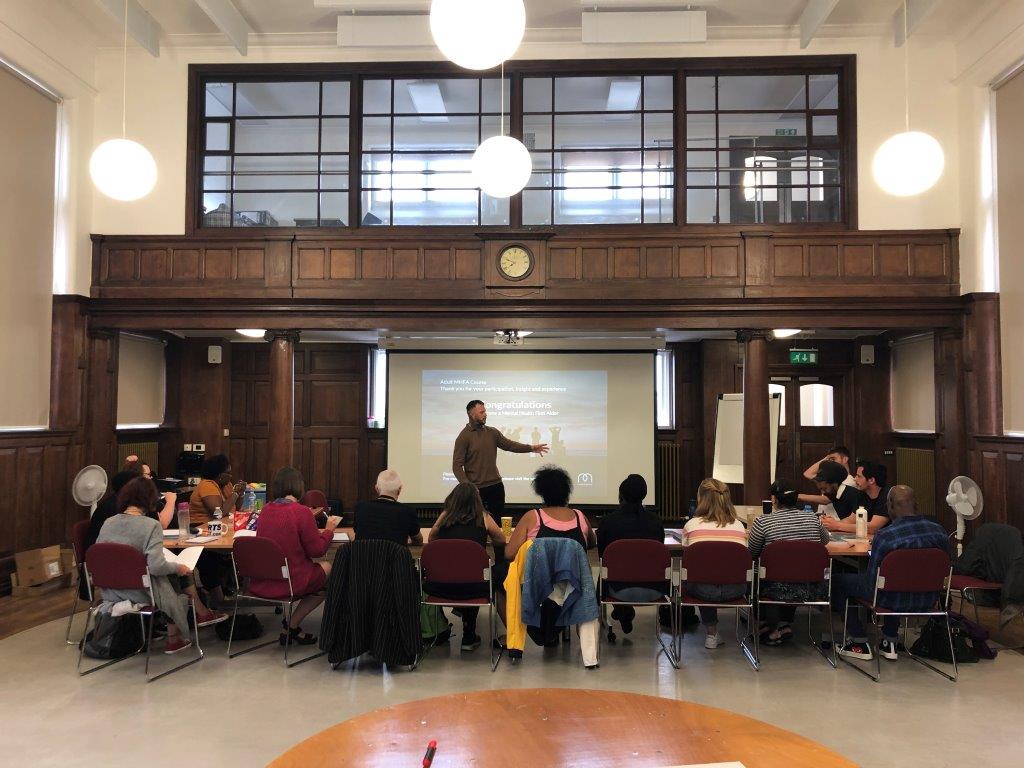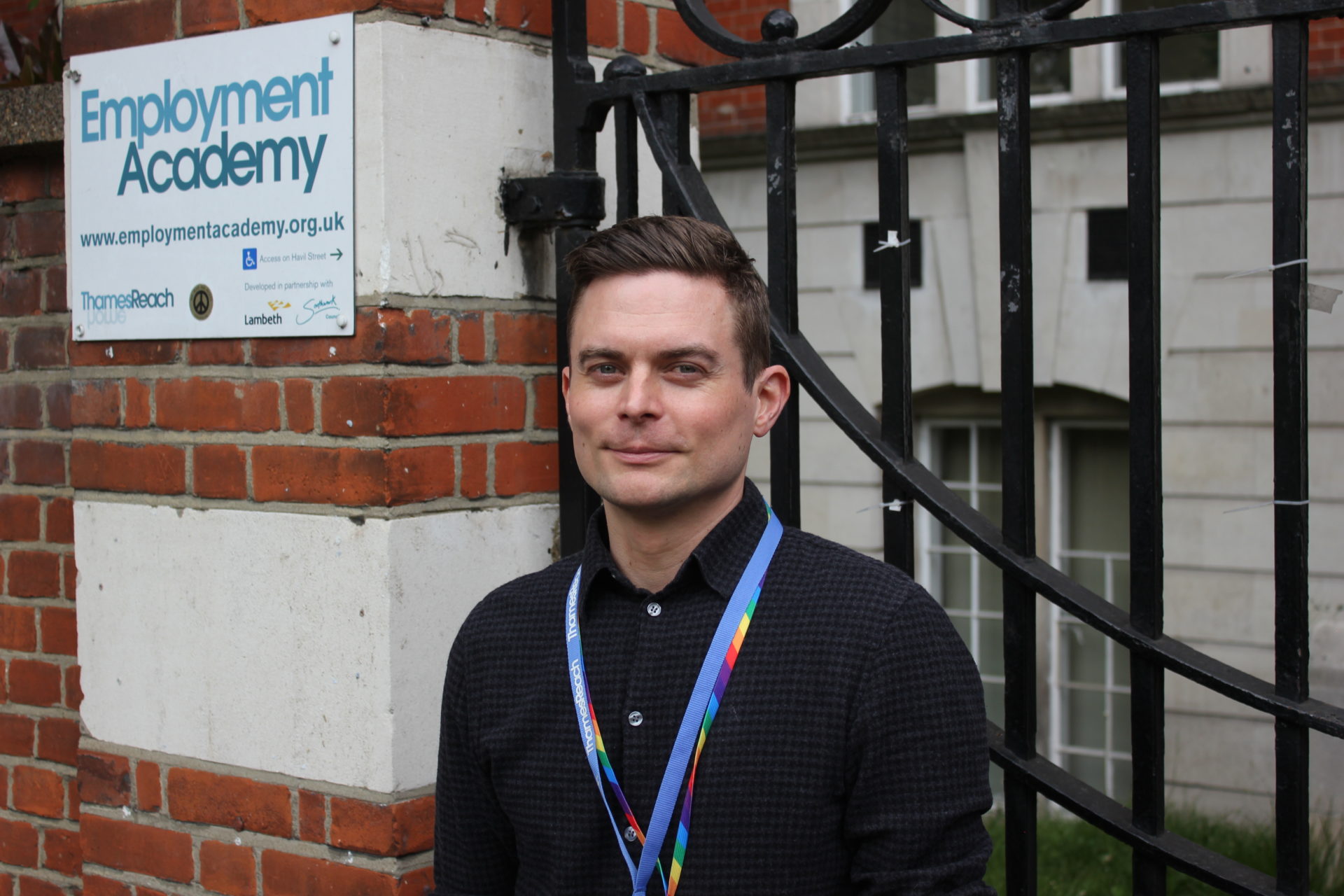A Day in the Life of a Thames Reach Trainee
After seven months as a trainee with Thames Reach’s programme, Laura felt confident enough to apply for a permanent role. Now working as a support worker, she looks back at her time as a trainee and outlines a typical day in the role.

Laura Mackenzie, support worker, The Waterloo Project
“The traineeship was a fantastic way to start my career in the homeless sector – you are eased into the work very gently. As a trainee, you feel like a student in the best sense. The teams I worked with were so supportive and nurturing, and they helped me grow a lot in a short time. After 7 months as a trainee, I had gained enough confidence, experience and skill to apply for a permanent job. I am now a support worker at the Waterloo Project.”
7am
“Today I am working an early shift – so I arrive at the hostel at 7am. After making an emergency coffee, it’s time for a ‘handover’. The previous shift run through our list of clients, letting us know who’s been seen throughout the night. Handovers are opportunities to flag any issues with clients or the building that the next shift needs to be aware of.”
7:30am
“I do a check of the building – one of the early shift’s ‘duty tasks’. Duty tasks are routine tasks that are done around the hostel every day, mostly relating to health and safety.”
8:30am
“The hostel is quiet, and there’s nothing urgent on emails, so I take the opportunity to work on a support plan. The Waterloo Project has 19 clients – all with complex needs around areas such as mental health and substance use. Support plans take this into account, they include assessments of the client’s risks and needs, as well as relevant goals. They are quite detailed documents, but as a trainee there’s plenty of time to get to grips with them, as you only have one client.”
9am
“I accompany my client to her 10am probation appointment. On other days I might accompany her to drug and alcohol services, court appearances and doctor’s appointments. As a trainee, there’s plenty of opportunity to see and build relationships with the many different external agencies that clients use. Sometimes these ‘external agencies’ come to the hostel, such as our weekly nurse clinic.”
10:30am
“My client and I have a detailed ‘keywork session’ – my favourite part of being a trainee. My client and I discuss the progress on her goals and have a think about some of the things she is struggling with at the moment. As a trainee, you have time for frequent and in-depth key work sessions with your client, giving you the chance to build strong rapport and trust. Keywork sessions allow you to build essential support work skills such as empathising, effective listening and maintaining boundaries.”
11:00am
“As a trainee, I was given responsibility for the area ‘service user involvement’. Service user involvement is about encouraging clients to participate in how the service is run. This morning I am helping facilitate a residents’ meeting, where clients can share their thoughts and suggestions about the hostel.”
12am
“It is time for the ‘welfare check’ – I knock and enter each of the bedrooms to ensure clients are safe.”
12:30
Lunch break.
1pm
“Today I have an online training session on ‘Client Support and Domestic Violence.’ All trainees complete a set of Core training courses, but beyond these, there are plenty of opportunities to take on additional learning. My client is struggling with issues around domestic violence and my supervisor supported me in seeking out this specific training.”
2:30pm
“The late shift arrives, and I hand over all relevant information. On alternate Wednesdays, this is also the time we have ‘reflective practice’. This is when our team, including our psychologists, gather for an in-depth reflective discussion on one client. These meetings really show you what taking a ‘team-approach’ to challenges looks like.”
3:00pm
“Home!”
Thames Reach’s traineeship programme is open for 2021. This year’s cohort will start in May 2021, and the deadline for applications is 7 February. Click here for more information on becoming a trainee.




